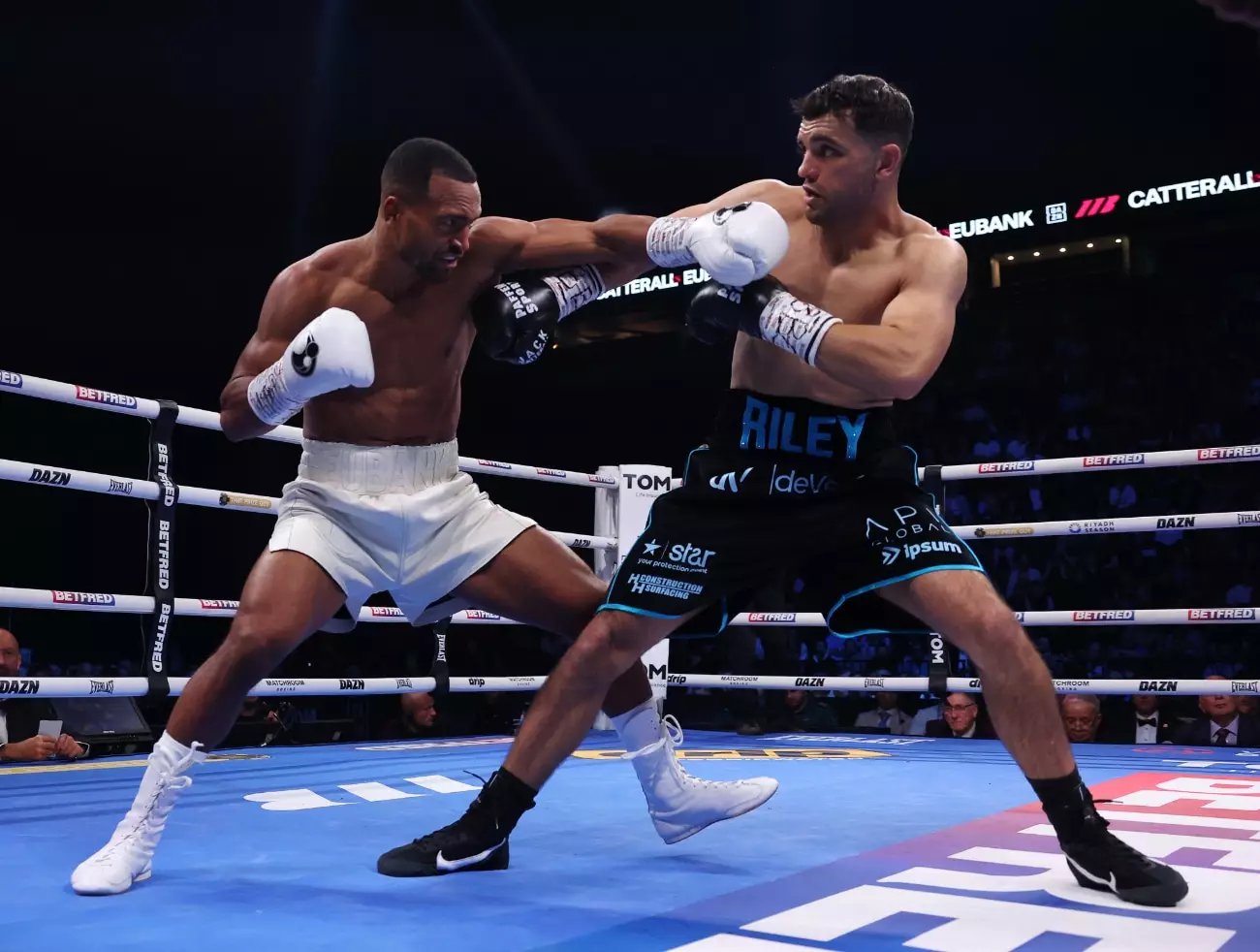In a recent clash at the Manchester Arena, Jack Catterall faced a sobering reality about the brutal nature of professional boxing. His victory over Harlem Eubank, marred by a technical decision due to a cut inflicted by an accidental clash of heads, becomes more than just a record adjustment—it exposes the deeper issues fighters must confront. While the official outcome may suggest a successful defense of a title, a critical eye reveals undeniable shortcomings that demand honest assessment.
Watching the fight, it’s evident that Catterall struggled to impose his will. His movement appeared sluggish, his punches lacked the damaging authority we’ve come to expect from a fighter vying for top-tier recognition. Instead of asserting dominance, he repeatedly retreated, seemingly overwhelmed by Eubank’s attempts to close distance. Such passive strategies are risky at the highest levels, especially at welterweight, where speed and power are paramount. His inability to counteract Eubank’s aggressive in-fighting raises questions about his readiness to navigate the dangerous waters of future world title bouts.
Moreover, the fight’s pacing and structure betrayed a certain predictability. It lacked the intensity and finesse that make a boxing match compelling. Instead, it had an almost uneventful, mechanical feel—definitely not the hallmark of a champion-in-the-making. The technical stoppage did not come as a surprise; it was a natural consequence of a clash where Catterall endured not just a cut, but also a visible depletion of his earlier sharpness. This reveals deeper vulnerabilities that cannot be overlooked if he genuinely aspires to reach the elite echelon.
Implications of the Fight’s Outcome for Catterall’s Future
The post-fight commentary provides invaluable insight into the strategic mindset behind Catterall’s camp. Promoter Eddie Hearn’s focus on positioning him for a world title shot reflects confidence in his ability to rebound from recent setbacks. However, that confidence must be matched with a dose of realism. Moving forward, Catterall’s team cannot afford to chase a quick rematch with Harlem Eubank that might prolong the cycle of stagnation. Instead, they should leverage this loss as a catalyst for targeted improvement.
Hearn’s blueprint is clear: aim higher and consider the IBF title, vacated by Jaron Ennis, as a more pragmatic stepping stone. The proposed fight against the winner of the Crocker versus Donovan match is a logical progression, given their current status and standing at the fringe of the ranking system. Yet, this strategy hinges on Catterall’s ability to evolve—adapting not just technically, but also mentally. Engaging with fighters at a slightly lower echelon can provide the confidence boost needed to challenge genuine contenders, while simultaneously allowing Catterall to sharpen his skills and restore faith among his supporters.
The reality is, Catterall’s current form at 147 pounds indicates a need for recalibration. His recent performances suggest a fighter still developing, but one whose approach must shift from cautious retreat to calculated aggression. The goal isn’t simply to avoid losses but to demonstrate the capacity for comprehensive growth—power, speed, defense, and tactics must be honed for him to truly make a mark.
Rethinking the Path to Championship Glory
While promoter Hearn aims for a swift ascent to the world title scene, history teaches us that patience and meticulous development often yield more lasting success. Jumping into the fray against seasoned champions like Brian Norman Jr. could be disastrous if Catterall remains unrefined. It’s crucial that he builds on his experiences, embracing the hard lessons learned and transforming frustration into fuel for improvement.
The idea of a rematch with Eubank seems both tempting and unnecessary. It’s a fight that might only reinforce the flaws exposed in this contest. Instead, Catterall’s focus should be on a series of controlled, strategic matchups against fighters who can challenge him without overwhelming him—fighting smart, not just fighting hard. This gradual buildup can prepare him for those ultimate challenges that await, whether at the IBF, WBO, or WBC.
In the grand scheme, Catterall’s future hinges on his willingness to accept criticism and use it as a stepping stone rather than a stumbling block. The boxing landscape is unforgiving, and even a victory that appears underwhelming can be a catalyst for true evolution. His team’s role is to turn the setbacks into lessons, ensuring that when the opportunity for a world title finally arrives, he is prepared to seize it—not with hesitation, but with strategic confidence and unwavering resolve.

